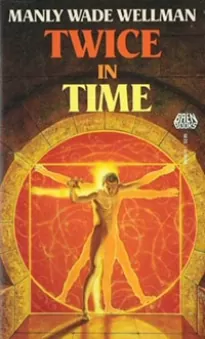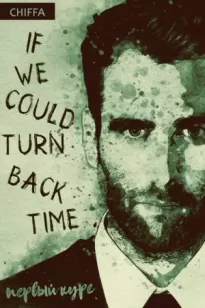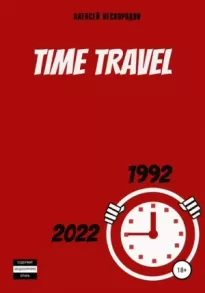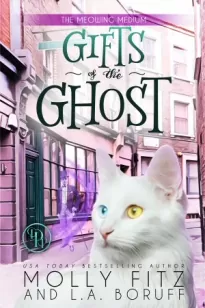TWICE IN TIME

- Автор: Мэнли Веллман
- Жанр: Фантастика
Читать книгу "TWICE IN TIME"
CHAPTER VIII The Court of Lorenzo
Perhaps it is odd, and yet not so odd, that I remember no more of that particular walk, of my warm disgust at Guaracco's confident leer, of his insistence on my aid to him. It is my fixed belief that, during our conversation, he found and took the opportunity to throw upon me his hypnotic spell. He could do that almost as well as the best Twentieth Century psychologists.
Walking together thus on the way to Verrocchio's
What I do remember is the next afternoon, and an equerry from the palace presenting himself before an impressed Verrocchio, with a message summoning me to his master. I went, clad in my simple best—the decent doublet and hose which Guaracco had given me on my first evening at his house, my red mantle, and a flat velvet cap with a long drooping feather. With a little shock of pleased astonishment, I saw that the equerry had brought me a horse—the same fine gray over which I had fallen out with the late lamented Gido.
"The beast is a present from the Magnificent," I was informed as I mounted.
To the palace we rode and there, while my horse was cared for by the equerry, I was conducted through a great courtyard to a rich garden among high hedges of yew, trimmed to a blocky evenness, with nichelike hollows for stone seats or white statues of Grecian style. There were roses, both on bushes and climbing briars, flowering shrubs in clumps and ordered rows, a perfectly round little pool with water lilies—all luxurious and lovely, though perhaps a bit too formally ordered. In the center of this, under a striped awning, lounged Lorenzo and his friends on cushioned seats of gilded wood and leather.
To the four other guests I was introduced as Ser Leo. His Magnificence still shied at pronouncing my barbarous surname. And I bowed to each as his name was spoken. First there was Lorenzo's younger brother and codespot, Giuliano, the same cavalier who had ridden with Lorenzo upon me at the moment of Gido's death. He was one of the handsomest men I have ever seen, even as Lorenzo was one of the ugliest.
Almost as highly honored was an elderly churchman with a fine, merry face and plain but rich vestments—Mariotto Arlotta, the aristocratic abbot of the woodland monastery of Camaldoli. His repute, I found, was that his repartee was the sharpest and readiest in all the state of Tuscany, and indeed he jested in a lively, though ecclesiastical, fashion.
Close beside him stood a plump, courteous young man in his middle twenties, Sandro Botticelli the rising court painter.[6] Him I found friendly, though moody.
The last man of the group, and the youngest, was an adolescent poet, Agnolo Poliziano. Uglier even than Lorenzo, he was wry-necked, crooked-mouthed, beak-nosed, and bandy-legged.[7]
Yet, for all this sorry person and ungrown youth, he was eloquent and thoroughly educated. From him I was to learn, in after days, much of what a man must know to shine as cultured in Fifteenth Century Florence.
"A young sparkle-wit, friends," Lorenzo told the others in presenting me. "He was thrown in my way, I nothing doubt, with the thought that he might assassinate me. Yet am I drawn to him by the lustrant wisdom of his speech. 'As well hang for a sheep as for a lamb,' he defied me yesterday."
He paused, while the saying went around the delighted group, from mouth to merry mouth.
"If he is dangerous, yet shall I keep him, as I keep the lions at the Piazza del Signoria. Guard me, all of you, from any weapon save his tongue." Once more he turned to me. "What of that sorcerer cousin of yours, Guaracco?"
To my own surprise I found myself pleading earnestly and eloquently for Guaracco. It was as if I had been rehearsed in the task, and indeed I probably was, by Guaracco himself. Hypnotists, I say again, can do such things. In the end Lorenzo smiled, and seemed far less ugly.
"By the mass, I wish my own kinsmen spoke so well on my behalf," he said to the others. "Ser Leo, your eloquence saved you yesterday, and today it recommends Guaracco. He is dull, I have thought, but he knows something of science. I am minded to send for him, for all he is a wizard."
"Sorcery cannot prevail against pure hearts," contributed the Abbot Mariotto, at which all laughed heartily.
The equerry who had conducted me was dispatched to search for and bring Guaracco. Meanwhile I was served with wine by a bold-eyed maid servant in tight blue silk, and entreated to join the conversation. It was turning just then on the subject of a new alliance of the Italian powers against possible Turkish invasion.
"The threat of the infidel comes at an opportune time," Lorenzo pointed out. "Taunted and menaced, we Christians forget our differences and draw together for our common safety. The Sultan dares not attack us, we dare not quarrel among ourselves, and peace reigns."[8]
"Your Magnificence does not like war, then?" I ventured.
He shook his ugly crag of a head. "Not a whit. It is expensive."
"And vulgar," added Botticelli.
"Aye, and dangerous," chimed in the poet Poliziano.
"And in defiance of heaven's will," sighed the abbot, as though to crown the matter.
"And yet," Lorenzo resumed, "I bethink me that it is well for a state to prepare for war, that others may fear, and be content to keep peace. I have it in mind, Ser Leo, that you spoke yesterday of war engines."
"I did," was my reply, but even as I spoke I was aware how poorly my scrambled memory might serve me. "For instance, I might design a gun that shoots many times."
"Ha, some of Guaracco's witchcraft!" exclaimed Lorenzo at once.
"Not in the least," I made haste to say. "Nothing but honest science and mechanics, may it please Your Magnificence."
In my mind the form and principle of machine-gunnery became only half clear. I wished that I had mentioned something else.
But Lorenzo would not be dissuaded from knowing all about my oft-shooting gun. He sent Poliziano for paper and pencils and ordered me to draw plans. I made shift in some fashion to do a picture of a gun-carriage, with wheels, a trail and a mounting of, not one barrel but a whole row, ten or more.
"It is nothing of particular brilliance," objected the poet. "A rank of arquebusiers would serve as well."
"Aye, but if we have not overmany ranks of arequebusiers?" countered Lorenzo, and gave me a most generous smile. "A single man, I think, could serve and air and fire this row of guns. Ten such machines could offer a full hundred shot. Well aimed and timely discharged, that hundred shot might decide a great battle."
Encouraged, I offered a variation of the idea, a larger and wider gun emplacement with, not small barrels, but regular cannon placed in a row and slightly slanted toward the center. These, I suggested, could be so trained as to center their fire on a single point. The bank of cannon, wheeled into position and the fuses lighted in quick succession, could throw a shower of heavy shot against a single small area upon a rampart or wall, battering it open.
"Right you are!" applauded Lorenzo. "It would outshine the greatest battering-ram in all Christendom."
"It may be improved," I continued, "by explosive shot in the cannon."
"Explosive shot?" Giuliano repeated in sharp protest. "How, Ser Leo? Is not all shot solid? Can lead and iron explode?"
"Yes, with powder and a fuse inside," I said at once, though none too surely.
"Now nay," he argued. "What would prevent such a shot from exploding in the very mouth of the cannon, belike splitting its barrel and doing injury to our own soldiers?"
I had to shake my head, saying that I could not answer definitely just then.
"Then another time," said Lorenzo kindly. "In the meanwhile"—he picked up my two drawings—"these will go to my armorers, for models to be made. Ser Leo can draw us other things, as well."
"He draws notably," contributed Botticelli.
Evening had drawn on, lamps were lighted, and we had supper in the garden, a richer and spicier meal than I care for. There was plenty of wine, and all drank freely of it, not excepting the abbot. Finally some fruits and ice-cooled sherbet were brought, and at this dessert we were joined by five or six ladies.
Most beautiful and arresting among these was the famous Simonetta Vespucci, the reigning toast of Florence. She was no more than eighteen years old, as I judged, but mature in body and manner, a tall, slenderly elegant lady, a little sloping in the shoulders but otherwise beyond criticism in the perfection of her figure. Her abundant hair gleamed golden, and her proud face was at once warmly and purely handsome.
All the men were her frank and devoted admirers. I have heard that the very shopkeepers and artisans who saw her pass on the street were wont to roll their eyes in awe at her loveliness, and even to fight jealously over this noble creature they dared not address. Of those present, she appeared to prefer the dark, dashing Giuliano de Medici.
"I fear that it will be a hot summer," she mourned as she finished her sherbet. "There will be little ice left in the storehouses, even now."
"Nay, then," I made haste to say. "Ice may be kept through the hottest months, if it is placed in houses banked with earth." I quickly sketched such a half-buried shed. "And also let the ice be covered deep with sawdust and chaff."
"How!" demanded the painter, Botticelli. "I have known chaff to be placed over fruit in a shop, and so keep it from freezing. If chaff keeps fruit warm, will it also make ice cold?"
I was on the point of launching into a discussion of refrigeration and insulation, but prudently stopped short.
"It does indeed bring coldness," I assured him. "Or rather it keeps the coldness that is there already."
"Black magic," muttered Abbot Marriotto, crossing himself with a beringed hand.
"Nay, white magic," decided Lorenzo, "for it does good on earth, does it not, and no harm to any creature? Ser Leo, do you guarantee that ice will thus remain through the summer, and not perish?" He turned to a servant. "Go you," he ordered, "and summon a secretary." And then to me: "He shall make notes of what you say, young sir, and tomorrow shall see the building of such a house. Therein my ice shall lie, with good store of chaff to insure its cold."
"This strange young man is a learned doctor," said the silvery voice of a lady, who toyed with a goblet of jeweled gold.
"Does he not know of more exalted things than chaff and houses buried in the earth?" asked Simonetta Vespucci, deigning to smile upon me. "Ser Leo—for so you seem to be called—can you not tell us a tale of these stars, which now wink out in the sky and float above our earth?"
Her eyes and her smile dazzled me, understandably, along with any man on whom they turned. Perhaps that is why I ventured to dazzle her in turn.
"Madonna Simonetta," I said, "permit me to say that those stars are worlds, greater than ours."
"Greater than ours?" she cried, and laughed most musically. "But they are no more than twinklets, full of spikes and beams, like a little shining burr."
"They are far away, Madonna," I said. "A man, if only at the distance of a hundred paces, appears so small that he can be contained within the eye of a needle held close before you. So with these bodies, which are like the sun—"
"The sun!" she interrupted. "The sun, Ser Leo, is round, not full of points like a star."
There was applause of her lively protest, from all the men and most of the women.
For answer, I took up a sheet of the paper on which I had been sketching, and asked for the loan of a pin. One of the ladies had a silver bodkin in her cap, and offered it. With this I pierced a hole in the paper.
"Madonna," I addressed Simonetta, "hold this hole to your eye, and look through it. The smallness of the opening will shut away the glitter ...So, you do it correctly. Now"—I pointed to where, in the evening sky, hung shimmering Jupiter—"look yonder. Is that star, seen through the hole in your paper, a burr or a small round body?"
"This is marvelous," she exclaimed. "It is indeed round, like a gold coin seen from a distance."
The others cried out in equal astonishment, and each must needs look through the hole in the paper at Jupiter. I turned over in my mind the possibilities of explaining a telescope, but decided not to offer another foggy theory that I could not support with exact plans or models. I contented myself with attempting to lecture on astronomy.
"Gentlemen and fair ladies," I said, as impressively as I could manage, "these stars look so small that nothing appears less, yet there are a great many that are far larger than our own Earth. Think then how trivial our own star would appear if—"
"Faith, Cousin," called out a voice I knew, "you seek to belittle the world, and Florence, and Lorenzo the Magnificent!"
It was Guaracco, absolutely overwhelming in green and gold, who strode forward and paid fulsomely cordial respects all around.
"Forgive my young kinsman, Your Magnificence, if he has been impertinent," he pleaded eloquently. Then, turning to me: "Will you step aside, Leo? I have a message for you, from Lisa."
At the mention of that name, a little murmur of laughing congratulation went up, to the effect that I must have a sweetheart. Indeed, I felt a quickening of my pulse as Guaracco and I walked a little away through the garden, out of the range of the lamplight.
"What is the message from her?" I asked him.
"That was but an excuse to get you alone," he growled. "I warn you, Leo, say no more of these matters of the stars."
"But why not?" I demanded, surprised.
"The stars in their courses are a specific knowledge of sorcerers. I overheard your teaching just now—"
"I was teaching truth," I broke in, warm to defend myself.
"I know it," he said. "I do not think this little mote, our planet, is the center of all things. But the old belief is part of my trade. I frighten or reward or guide men by horoscopes and prophecies—from the stars. Do you not show me a liar, else I may smooth your way to destruction."
I glared at him, but in my mind was more wonder than rage. Once again he showed himself a sound scientist; once again he showed that he hid his knowledge and fostered error for profit. Only some great evil wish dictated such action. I need not to be too ashamed, I feel, to say that he made me afraid.





